
Cheap Trick is an American rock band from Rockford, Illinois, formed in 1973 by guitarist Rick Nielsen, bassist Tom Petersson, lead vocalist Robin Zander and drummer Bun E. Carlos. The current lineup of the band consists of Zander, Nielsen and Petersson. Their work bridged elements of '60s guitar pop, hard rock, and punk rock, and would help set the template for subsequent power pop artists.
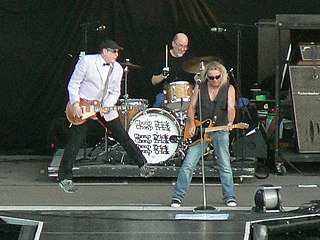
Brad M. Carlson, better known by the stage name Bun E. Carlos, is the original drummer for American rock band Cheap Trick. He recorded and performed with the band from 1973 to 2010. Carlos was inducted into the Rock and Roll Hall of Fame in 2016 as a member of Cheap Trick.

Cheap Trick is the debut studio album by the American rock band Cheap Trick, released in 1977. It was released under Epic Records and produced by Jack Douglas, a frequent collaborator of the band. The album did not reach the Billboard 200 chart but did "bubble under" at number 207 for one week in April 1977.

"I Want You to Want Me" is a song by the American rock band Cheap Trick. It is originally from their second album In Color, released in September 1977. It was the first single released from that album, but it did not chart in the United States in its original studio version, which was influenced by music hall styles.

"Mighty Wings" is a song by American rock band Cheap Trick, which was released in 1986 as the third single from the soundtrack of the film Top Gun. It was written by Harold Faltermeyer and Mark Spiro, and produced by Faltermeyer.

"Dream Police" is a song written by Rick Nielsen and originally released in 1979 by the American rock band Cheap Trick. It is the first track on the group's album of the same name. The single peaked at #26 on the Billboard Hot 100. Nielsen has stated that the song "is an attempt to take a heavy thought - a quick bit of REM snatched right before waking up - and put into a pop format." He also stated that "the song was about Big Brother watching you."
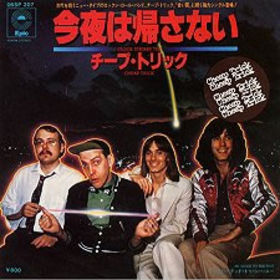
"Clock Strikes Ten" is a song released in 1977 by Cheap Trick on their second album, In Color. It was written by Cheap Trick guitarist Rick Nielsen. It was released as a single in Japan, where it was a major hit and reached No. 1 on at least one singles chart. Its success, as well as the success of two follow up singles, "I Want You to Want Me" and "Surrender", paved the way for Cheap Trick's famous concerts at Nippon Budokan in Tokyo in April 1978 that were recorded for the group's most popular album - Cheap Trick at Budokan.
"Hello There" is a song written by Rick Nielsen and first released on Cheap Trick's 1977 album, In Color. The song was also often used as the first song of Cheap Trick concerts, and as a result was the first song on the band's seminal live album Cheap Trick at Budokan.

"Voices" is a song written by Rick Nielsen and recorded by American rock band Cheap Trick which appeared on the album Dream Police. The single was released in 1979 and peaked at number 32 in the US. The single has become one of the band's more widely known tracks.
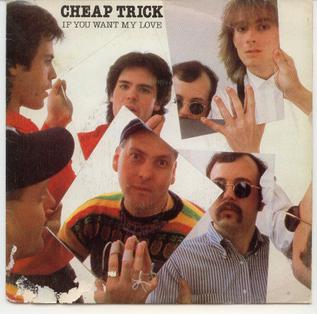
"If You Want My Love" is a song by American rock band Cheap Trick, released in 1982 as the lead single from their sixth studio album One on One. It was written by guitarist Rick Nielsen and produced by Roy Thomas Baker. It reached number 45 on the US Billboard Hot 100 and number 2 on the Australian Kent Music Report chart.
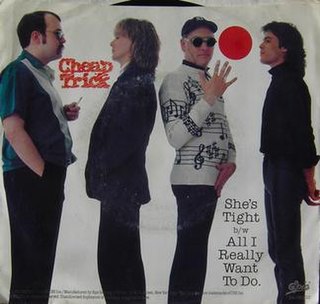
"She's Tight" is a song by the American rock band Cheap Trick, which was released in 1982 as the third single from their studio album One on One. It was written by guitarist Rick Nielsen and produced by Roy Thomas Baker. It reached No. 65 on the Billboard Hot 100 Chart.

"Tonight It's You" is a song by American rock band Cheap Trick, which was released in 1985 as the lead single from their eighth studio album Standing on the Edge. It was written by Rick Nielsen, Robin Zander, Jon Brant and Mark Radice, and produced by Jack Douglas. "Tonight It's You" reached No. 44 on the US Billboard Hot 100 and No. 8 on the Billboard Top Rock Tracks Chart.
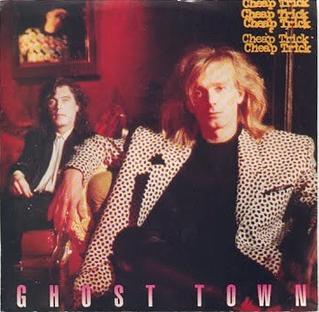
"Ghost Town" is a song by American rock band Cheap Trick, released in 1988 as the third single from their tenth studio album Lap of Luxury. It was written by Diane Warren and guitarist Rick Nielsen, and produced by Richie Zito. The song reached number 33 on the Billboard Hot 100.

"Never Had a Lot to Lose" is a song by the American rock band Cheap Trick, which was released in 1989 as the fifth and final single from their tenth studio album Lap of Luxury (1988). It was written by lead vocalist Robin Zander and bassist Tom Petersson, and produced by Richie Zito. The song reached No. 75 on the Billboard Hot 100.

"Stop This Game" is a song by American rock band Cheap Trick, released in 1980 as the lead single from their fifth studio album All Shook Up. It was written by Rick Nielsen and Robin Zander, and produced by George Martin. "Stop This Game" reached No. 48 on the US Billboard Hot 100 and No. 32 on the Canadian RPM Top Singles.

"Way of the World" is a song by American rock band Cheap Trick, which was released in 1980 as a single from their fourth studio album Dream Police (1979). The song was written by Rick Nielsen and Robin Zander and produced by Tom Werman. In February 1980 it was released as a 7" vinyl single in the UK only, backed by "Oh, Candy," from the first Cheap Trick album, and peaked at #73. It attempted to capitalize on the success of the mid-1979 single "I Want You to Want Me" and the live album Cheap Trick at Budokan which both entered the top 30.
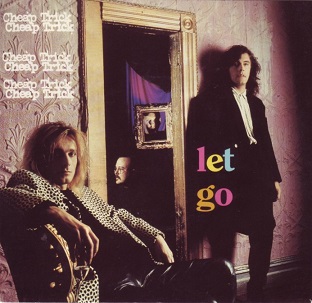
"Let Go" is a song by the American rock band Cheap Trick, which was released in 1988 as the fourth single from their tenth studio album Lap of Luxury. It was written by guitarist Rick Nielsen and Todd Cerney, and produced by Richie Zito.

"I Can't Take It" is a song by the American rock band Cheap Trick, which was released in 1983 as the second single from their seventh studio album Next Position Please. The song was written by Robin Zander and produced by Todd Rundgren.

"Didn't Know I Had It" is a song by American rock band Cheap Trick, released in 1994 as the fifth and final single from their twelfth studio album Woke Up with a Monster. It was written by Rick Nielsen and Todd Cerney, and produced by Ted Templeman.

"When I Wake Up Tomorrow" is a song by American rock band Cheap Trick, which was released in 2016 as the second and final single from their seventeenth studio album Bang, Zoom, Crazy... Hello. It was written by Julian Raymond, Robin Zander, Rick Nielsen and Tom Petersson, and produced by Raymond and Cheap Trick. Released as a promotional single in the United States, "When I Wake Up Tomorrow" reached No. 24 on the Billboard Mainstream Rock chart.



















